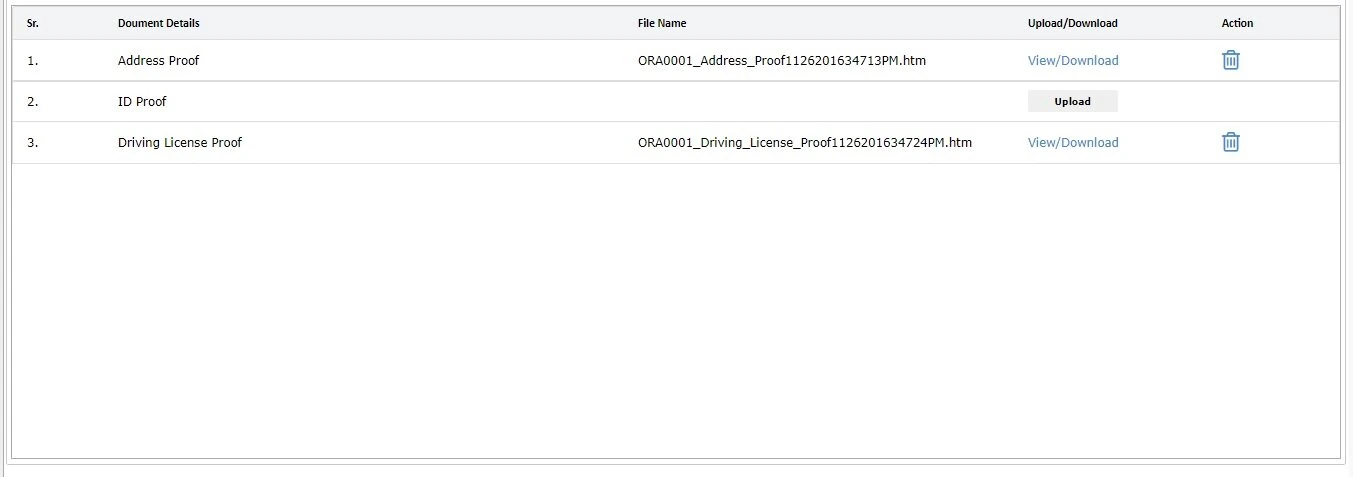Document Management Software
Organize the company/HR document with safety in paperless manner by Savvy HRMS

Document Management
Document Management System is used to keep track, manage and store documents by Employees. Employee can upload document with comments in any format and download, view the same as per requirement.
- Security of documents.
- Manage documents of employees
- Upload documents on DMS
- Reduce paper work
- User mapping for view and download.
Manage Employee Documents
Crucial Features of a Document Management System A good DMS comes with a set of important features that make document operation easier and more effective
1. consolidated Document Storage A DMS allows businesses to store all documents in one secure, accessible position, making it easy to recoup lines when demanded.
2. Version Control Version control ensures that the most over- to- date interpretation of a document is always available, and aged performances are kept for reference or auditing purposes.
3. Document Indexing and Search Functionality Automated indexing makes it easy to tag and classify documents for fast hunt and reclamation using keywords, metadata, or content.
4. Access Control and Permissions Granular stoner warrants allow businesses to control who can access, edit, or share specific documents, enhancing document security and compliance.
5. Collaboration Tools numerous DMS results allow real- time collaboration, enabling multiple druggies to view, note on, and edit documents, which improves cooperation and productivity.
6. Automated Workflow Management Workflows can be automated to route documents through blessing processes or specific tasks, reducing homemade intervention and speeding up processes. Benefits of Using a Document Management System enforcing a DMS brings multitudinous benefits to associations of all sizes
1. Improved Efficiency and Productivity With easy document reclamation, automated workflows, and centralized storehouse, workers can spend lower time searching for documents and further time on productive tasks.
2. Enhanced Security and Compliance A DMS provides secure, translated storehouse and shadowing of sensitive documents, helping businesses meet nonsupervisory conditions and help unauthorized access.
3. Cost Savings By reducing the need for paper storehouse and homemade document running, a DMS can lead to significant cost savings in terms of physical space and functional outflow.
4. More Document Collaboration A DMS enables multiple platoon members to work on documents contemporaneously, perfecting collaboration, decision- timber, and design reversal times.
5. Disaster Recovery and Provisory Digital documents stored in a DMS can be backed up and defended from physical damage, icing durability in case of extremities.
Types of Document Management Systems Depending on the requirements of a business, there are different types of DMS available
1. pall- Grounded DMS A pall- grounded DMS stores documents on the pall, making them accessible from anywhere, anytime. It’s ideal for businesses with remote brigades or those looking for a scalable result.
2. On- Premise DMS An on- premise DMS is hosted locally on a company’s waiters, offering further control over data security and customization. It’s ideal for associations with strict security or compliance conditions.
3. mongrel DMS A mongrel DMS combines the benefits of both pall- grounded and on- premise results, allowing businesses to store sensitive documents on original waiters while using pall availability for less sensitive data. How to Choose the Right Document Management System When opting a DMS for your business, consider the following factors
1. Scalability insure the system can gauge with your growing business requirements, including document volume and stoner access. 2. stoner- benevolence The system should be intuitive and easy for workers to use with minimum training.
3. Integration with Other Software Choose a DMS that integrates seamlessly with your being software tools, similar as CRM, ERP, or productivity platforms.
4. Security Features Look for robust security features, including encryption, two- factor authentication, and part- grounded access control. 5. Cost and Support Compare pricing models and choose a system that fits your budget while offering dependable client support. operations of a Document Management System A DMS can be used across colorful diligence and business functions
1. Legal Industry Law enterprises use a DMS to securely manage customer contracts, legal missions, and case lines, icing compliance with confidentiality regulations.
2. Healthcare Hospitals and conventions manage patient records, medical histories, and billing documents securely, perfecting patient care and meeting HIPAA compliance.
3. Education Educational institutions can manage pupil records, assignments, and executive documents efficiently, making it easier to track academic progress.
4. Finance Financial institutions use DMS to manage sensitive fiscal documents like duty returns, loan agreements, and investment portfolios, while icing nonsupervisory compliance. Conclusion A Document Management System is essential for businesses looking to ameliorate their document running and streamline operations. By digitizing documents and polarizing storehouse, companies can enhance productivity, security, and collaboration while reducing costs. Choosing the right DMS will depend on your specific business requirements, but with the right system in place, you can transfigure the way your association manages its most critical information.

